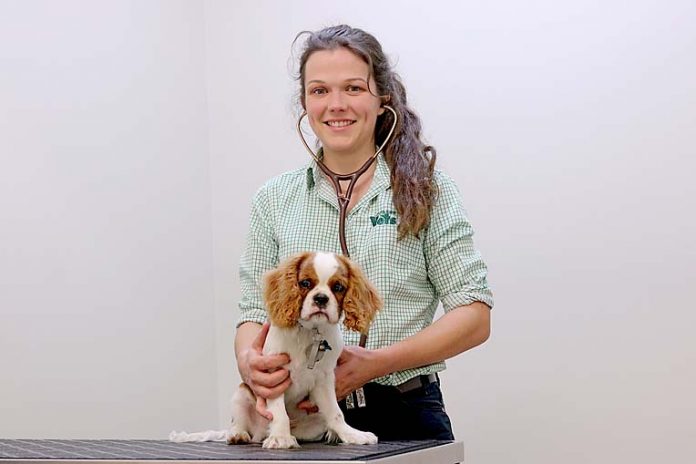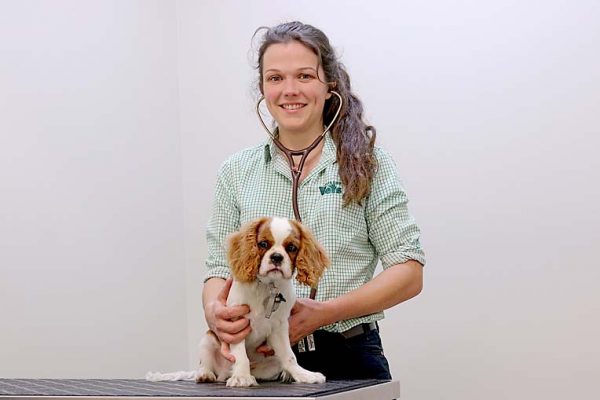

Picture: MOLLY TAYLOR
VACCINATION remains the best protection against serious disease in domestic animals, with a leading South East vet encouraging residents to help build a barrier from potentially fatal ailments.
South East Vets veterinarian Courtney Swanson encouraged pet owners to follow a vaccination protocal for their animals to prevent the spread of diseases, some of which can be life-threatening.
Dr Swanson said the most common virus vaccinated for at the clinic was canine parvovirus.
“This disease can be fatal,” she said.
“It can occur in dogs of all ages so having a yearly vaccination schedule is important.”
Dr Swanson said several illnesses which impacted domestic animals were easily transferable.
“Dogs which have been in areas like dog parks and public pathways are most at risk as this is where illnesses can be transmitted,” she said.
“If you do not vaccinate your pets there will be a risk your pet may contract an illness.”
Most dogs treated at vet clinics receive a vaccine which includes protection from canine parvovirus, infectious hepatitis, distemper, parainfluenza virus and Bordetella Bronchiseptica (canine cough) virus.
“Cats are vaccinated for feline rhinotracheitis virus, calicivirus and panleukopaenia virus,” Dr Swanson said.
“There is also an option for vaccination against feline immunodeficiency virus – also known as cat AIDs, Feline Leukaemia virus and Feline Infectious Peritonitis.”
Dr Swanson said feline immunodeficiency virus, or “cat AIDs”, was present in the feral cat population and was seen occasionally.
“This is commonly transmitted through saliva and fight wounds,” she said.
“If you are letting your cat roam outside at night time they are more prone to contracting an infectious disease.
“If they are fully vaccinated, they have much better immunity compared to an unvaccinated animal.”
Dr Swanson said the general yearly vaccination – 12 months after puppy or kitten vaccinations – is also a good opportunity for a pet health check.
“Healthwise, we may be able to early detect other illness’ that pets might have,” she said.
Other than dogs and cats, Dr Swanson said sheep, cows, horses and rabbits were also commonly vaccinated against diseases.
“Once a pet is infected the virus can easily spread which is why most clinics have an isolation ward to prevent further spread of diseases,” she said.
“People need to contact their veterinary clinic to work out which protocol is best suited for their pet.
“I encourage people to vaccinate their pets annually and get them microchipped so they can be returned home safely if lost.”
World Veterinary Day celebrations were held late last month, with the international event focusing on the theme value of vaccination.







